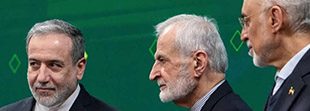Operation Grapes of Wrath (1996)
Three years later, in 1996, the conflict escalated once again when Israel launched Operation Grapes of Wrath. This campaign was a direct response to Hezbollah’s continued rocket attacks on northern Israel. The Israeli military blockaded key Lebanese port cities and bombed a Syrian military base in Lebanon, signaling a significant escalation in the conflict. After 16 days of intense fighting, which resulted in significant civilian casualties, including the infamous Qana massacre where over 100 civilians were killed by Israeli shelling, an agreement was reached.
The Israeli-Lebanese Ceasefire Understanding stipulated that both sides would refrain from targeting civilian areas. Hezbollah agreed to halt its rocket attacks, while Israel promised to stop its attacks on Lebanese towns and villages. However, much like the agreement reached after Operation Accountability, this ceasefire did not last long. The conflict between Hezbollah and Israel would continue, with both sides preparing for the next round of hostilities.
The Israeli Withdrawal from Southern Lebanon (2000)
By the late 1990s, it was becoming increasingly clear that Israel’s occupation of southern Lebanon was unsustainable. The so-called “security zone,” which Israel had established to protect its northern border from Hezbollah attacks, had failed to achieve its intended purpose. Hezbollah’s rocket capabilities continued to improve, and Israeli forces stationed in southern Lebanon were suffering heavy casualties from Hezbollah’s guerrilla tactics.
In Israel, there was growing debate about whether the continued presence of Israeli troops in Lebanon was worth the cost. Many Israeli politicians began to argue that the occupation was only fueling Hezbollah’s resistance and that a full withdrawal might be the best way to end the conflict.
In May 2000, Israeli Prime Minister Ehud Barak made the decision to unilaterally withdraw Israeli forces from southern Lebanon. This marked a major victory for Hezbollah and Nasrallah, who had long advocated for the complete removal of Israeli troops from Lebanese soil. The withdrawal was chaotic, as the South Lebanon Army (SLA), a militia backed by Israel, collapsed under Hezbollah’s onslaught. Many SLA members fled to Israel, while others were captured by Hezbollah.
The Israeli withdrawal significantly boosted Hezbollah’s popularity, both within Lebanon and across the broader Islamic world. Nasrallah was hailed as a hero of the resistance, and Hezbollah’s success was seen as a model for other Arab and Islamic movements seeking to resist Israeli occupation.

